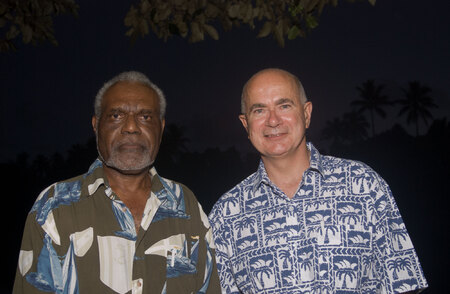[This week’s Communications column for the Vanuatu Independent.]
NOTE: In a small place such as Vanuatu, it often happens that one has to wear a number of different hats. I work as an IT consultant, offering advice and information to clients in the private, public and civil society sectors. I am also a writer and photographer. I volunteer some of my time to help with local IT projects, and I serve as interim secretary of the Vanuatu IT Users Society. This column is written under those auspices, but from time to time my professional work bleeds into the area of advocacy and awareness-raising. In cases where I have a professional involvement or interest in a particular issue, I will make that clear within the text of the column.
No writer is free from bias. This is especially true of columnists. While I make every effort to ensure that any facts and statements appearing in this space are properly corroborated, I reserve the right to interpret them according to my own experience, judgement and insight. It’s my job to have an opinion. Unless I state otherwise, the views expressed here are my own.
Knowledge is power.
Everyone knows that expression, and many of us have to grapple with its practical implications every day. When we’re tracking down the person who knows how a particular thing works, digging through arcane data in order to become the person who knows, or whether we’re trying to pry special knowledge loose from a reluctant source, we find ourselves operating in an economy of scarcity.
When we trade in knowledge, we also rely on its scarcity to determine its value. If we have a juicy piece of gossip about someone, we don’t tell it to everyone and their dog. Instead, we parse our words and choose our confidants carefully, sometimes teasing them with partial revelation.
Let’s reformulate that initial statement, then:
Scarce knowledge is power.
If we follow the logic of that sentence, we are prone to conclude that widespread knowledge is therefore valueless. In the cash economy, if there’s too much money floating around, we experience inflation. Dollars lose their value because everyone has them. This has led some barstool philosophers to conclude that opinions, too, are of little value because ‘everyone’s got one.’
Continue reading →

